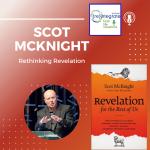“They know that I’m a voice of reason, of honesty, but also consistency.”
How do you stay centered on Jesus in your personal life?
My focus is on attempting to be an example, by action first, in how I conduct myself. My hope is that people will see something different about me from the mainstream. I try to surround myself with good influences (e.g. family, friends, mentors) who are willing to be truth-tellers. Having the accountability of people who are willing to call you out when you deviate from the right path is vital. I also try to start my day with a quiet time to get everything in proper perspective, before the hustle and bustle of the day comes about.
What advice would you give to someone at or near the bottom of the corporate hierarchy who aspires to lead and serve others?
Be true to yourself and what you think others want you to be. One of my favorite quotes is from John Wooden: “Be more concerned with your character than your reputation, because your character is who you really are, while your reputation is merely who others think you are.” Too often, less experienced people get caught up in what I like to call the tyranny of the “or”. They get focused on having to make binary choices, when there are often times creative solutions that encompass both sides of that binary option. The word “and” can be powerful, if you are willing to look for less obvious solutions.
The other thing I would remind less experienced people is that often the only difference between those at the top and those at the bottom of the pyramid is age and number of reps. Usually, our younger people are more talented. They just need some battle scars to develop their sense of judgment. Most people are craving to be led. It doesn’t have to come from the top of the organization.
What does giving back look like as a young professional who may not have an abundance of resources?
The two biggest variables in most people’s lives are time and money. They usually are inversely proportional to each other. In college, most people have an abundance of time and limited economic resources. As your career progresses, you normally gain more money and have less discretionary time (due to marriage, children, accelerating work and community commitments, etc.). Early in my career, I tried to focus on giving of my time abundantly. This included volunteering to coach basketball at our local community center and teaching Sunday school classes at our church. I began to work on the habit of giving financially, even if it was in smaller amounts. Good habits can last a long time. A key for me was finding ways to invest in people I knew who were involved in various ministries. I found that I could support them financially in ways that were meaningful. It was a great way for me to build the habit of giving.
How does your work in your profession serve the Lord?
As a professional service provider, we always have to put our clients first. The focus, at its core, is on creating value for their organization. To me, this is true servant leadership. With more than 65,000 people in our organization, I also have the opportunity to influence and impact how many people see the world. This is an opportunity for me to show how leaders can be different.How have you seen God work in your weaknesses or failures?
I hope this is normal, but I’m having to confront my failures multiple times a day. It’s not until you get out there into the real world and try to accomplish something on your own that you realize how insufficient you are in getting it done. Insufficient, and yet wonderfully made. I’m learning to embrace both at the same time.
How do you make time to coach while serving in executive leadership at Deloitte?
It goes back to not succumbing to the tyranny of the “or”. First, I have defined my own personal points of passion, and I am unrelenting not letting those be compromised. Second, I have incorporated them into what is important to my wife, so that we have a joint game plan around our passions: faith, education, youth, athletics. By having a target to shoot at, you can then focus on the choices. I get up very early in the morning (typically around 4:00am), so that I can have late afternoon/early evenings available for coaching. When my kids were at home, I did not often see them in the morning, but I was able to trade that for their after-school and evening activities. And as I like to say, “Sleep is overrated.”
As a corporate executive and as a coach, how do you bring out the best in those around you?
I look for people who have passion, and I try to unleash that passion. We talk early about what the objective of a particular assignment is, but how it gets accomplished is usually more influenced by them than by me. Said differently, I want to make sure they are not being micro-managed, but they need to feel supported at the same time. I often talk about the longer journey vs the immediate outcome. We learn from both winning and losing. What are the takeaways from any situation, good or bad? Learn from them and make sure that mistakes are not repeated, while good habits are reinforced and replicated over and over again.
Discussion Questions
Centered Discussion Questions are simple resources to facilitate discussion and reflection of Centered Stories and life principles for group settings.
Subscribe to Centered Stories
Never miss another Centered Story. Find inspiration, encouragement, and wisdom to help you stay centered on Jesus in your everyday life.













